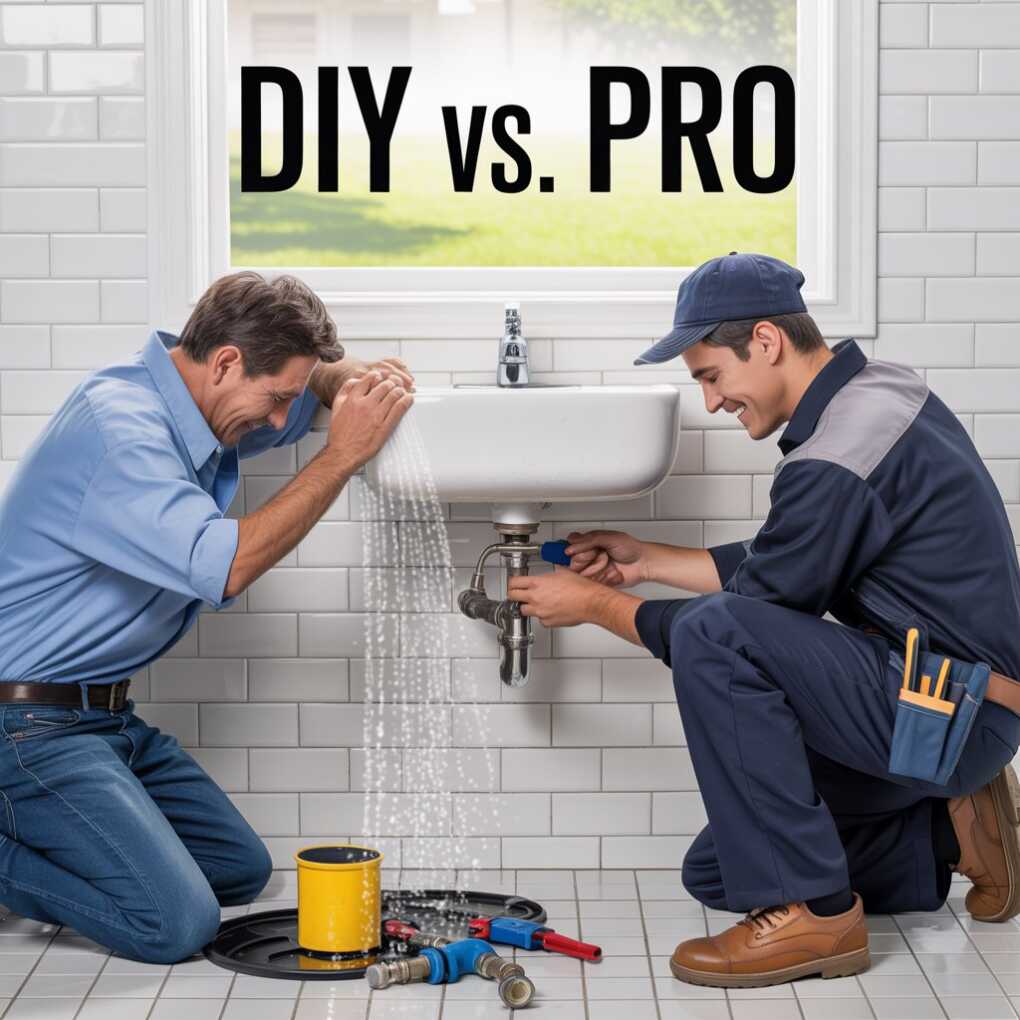Ever had a leaky tap or a slow drain and wondered if you should try to fix it yourself or call in a pro? It’s a common question for homeowners, especially when considering other maintenance needs like house washing Sunshine Coast. While it feels great to tackle a DIY project, sometimes plumbing jobs are best left to the experts. Knowing the difference can save you time, money, and a whole lot of headaches.
Let’s break down when you can be a plumbing hero and when it’s smarter to pick up the phone.

Small Drips and Minor Clogs: Your DIY Zone
For some common plumbing annoyances, you can definitely try to fix them yourself. These are usually pretty straightforward and don’t involve messing with major pipes or gas lines.
- Drippy Faucets: Often, a dripping tap just needs a new washer or a cartridge replacement. You can usually find guides online or on YouTube for your specific tap model. Just remember to turn off the water supply first!
- Slow Drains: If your sink or shower is draining slowly, it might just be a hairball or some gunk. A plunger, a drain snake (a long, flexible tool you can buy), or even a mix of baking soda and vinegar can often clear these up.
- Running Toilets: Is your toilet constantly running? This is usually a problem with the flapper or the fill valve inside the tank. These parts are fairly easy to replace, and you can often find replacement kits at your local hardware store.
These are great ways to save a few quid and feel accomplished!
When to Call in the Big Guns: Time for a Professional Plumber
Now, for the trickier stuff, it’s really important to know when to step back and call a professional. Trying to fix complex plumbing issues yourself can lead to bigger, more expensive problems down the line – like floods, water damage, or even gas leaks.
Here’s when you should definitely call a plumber:
- Burst Pipes: This is an emergency! If you have water gushing anywhere, turn off your main water supply immediately and call a plumber. This isn’t a DIY job.
- No Hot Water or Boiler Issues: If your boiler isn’t working, or you have no hot water, it could be a serious problem. Boilers involve gas and high pressure, so you must call a Gas Safe registered engineer.
- Persistent or Recurring Clogs: If your drain keeps clogging after you’ve tried to fix it, or if multiple drains are slow, it could mean a blockage deeper in your plumbing system. This needs special tools and expertise.
- Low Water Pressure Throughout Your Home: If all your taps and showers have weak pressure, it’s not just one fixture. This could be a problem with your main water line, a pressure regulator, or even limescale buildup.
- Visible Leaks in Walls or Ceilings: If you see damp patches, water stains, or peeling paint on your walls or ceiling, you likely have a hidden leak. These can cause serious structural damage and mould if not fixed quickly and correctly.
- New Appliance Installation (Water/Gas): Installing a new dishwasher, washing machine, or especially a gas cooker? It’s best to have a professional connect these to your water and gas lines to ensure they’re safe and leak-free.
A Senior Plumber’s Insight
We spoke with Jamie Watkins, a senior plumber at Homecure Plumbers, about this very topic. Jamie shared, “Many homeowners are keen to save money, which is great for simple fixes. But when it comes to anything involving your main water supply, drainage system, or especially gas, the risks of a DIY gone wrong are just too high. We often see bigger problems caused by well-meaning attempts to fix something complex.”
Jamie added, “For anything beyond a quick fix, especially with hidden pipework or gas appliances, it’s always safest to call in the experts. You can find reliable help from highly rated plumbers in London to ensure the job is done correctly and safely.”
The Bottom Line
While it’s awesome to be handy around the house, knowing your limits when it comes to plumbing is super important. For small, visible issues, give DIY a shot! But for anything that seems complicated, involves gas, or could cause major damage, don’t hesitate to call a professional. It’s an investment in your home’s safety and your peace of mind.
